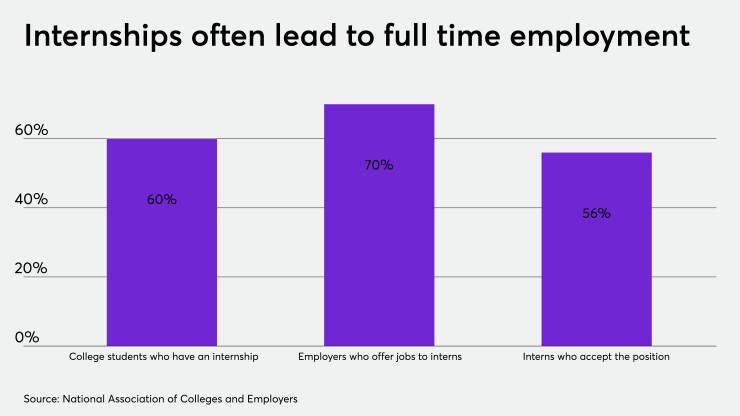Summer has arrived, which means
“What is the point of interns?” says Cathryn Schofield, university program manager at Tektronix, a device manufacturing firm. “Why are we investing in students who haven’t even graduated? The view is really on the future — the future of the organization and what the talent needs are going to be in two to five years.”
Sixty percent of students do an internship during college, and 56% will get a full-time job after working at a company as an intern, according to the National Association of Colleges and Employers. To maximize the investment and ensure you’re
Read more:
“The regular feedback we get from managers and mentors is that interns could do so much more than we expected,” Schofield says. “We get solutions for the future while also getting some great work done over the summer that our full-time employees don't have time for, or that aren't as high priority, but are still interesting, impactful work.”
An internship can also be an opportunity to provide
“If we can get students with those interests early and develop them in-house, then we're not running into some of the skills gap issues we face when somebody is 10 years into their career,” she says.
Read more:
Employers can ensure a solid class of interns by taking a critical look at their
Once the interns are in the door, Schofield recommends creating an immersion program to help them get the full workplace experience. Because of the pandemic, the majority of these efforts will be virtual, but that provides an even greater opportunity to help interns shine.
“The immersion program focuses on introducing the interns to their team and getting them connected to all of the resources and tools they will need to get familiar with, through a robust orientation,” she says. “We're much more intentional about making sure we're making those introductions and building that network.”
Read more:
At the start of the summer, employers should already have a good sense of how their interns will contribute to the greater purpose of the organization. Having that clarity now will make future hiring decisions easier than ever.
“If you're focused on internships as a funnel of early career talent, rather than a temporary short-term labor force, then other things are going to fall into place,” Schofield says. “It's going to make more sense to invest in them. If the focus is on them as the future of the organization, it will help the company understand the purpose of the program.”






